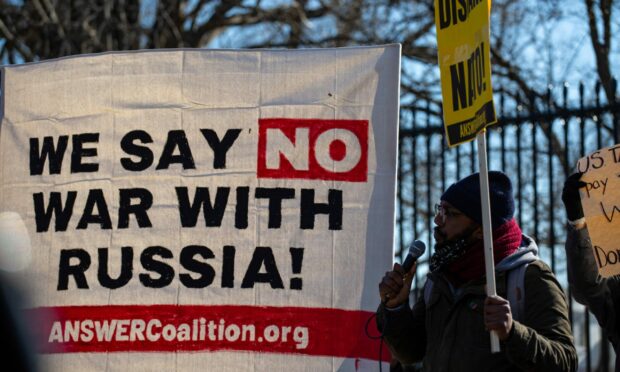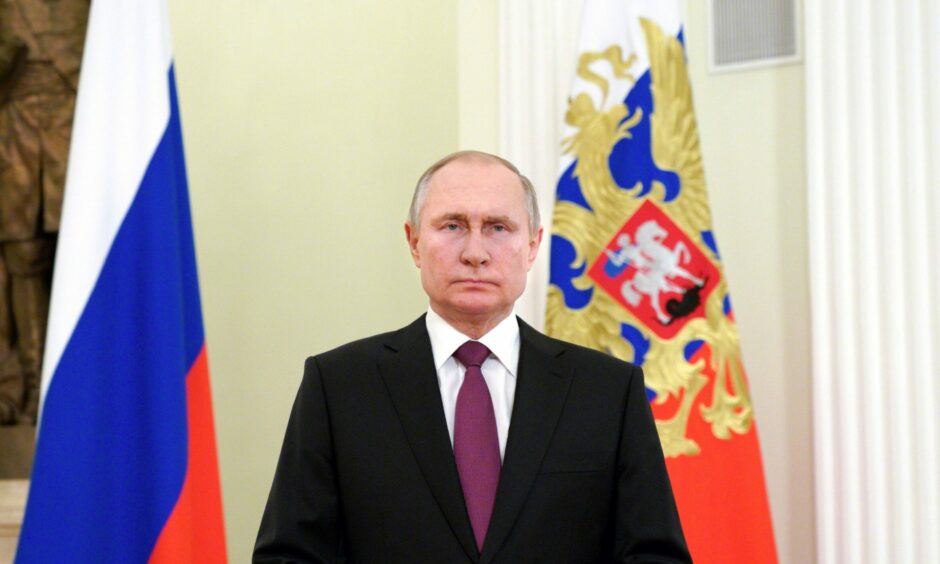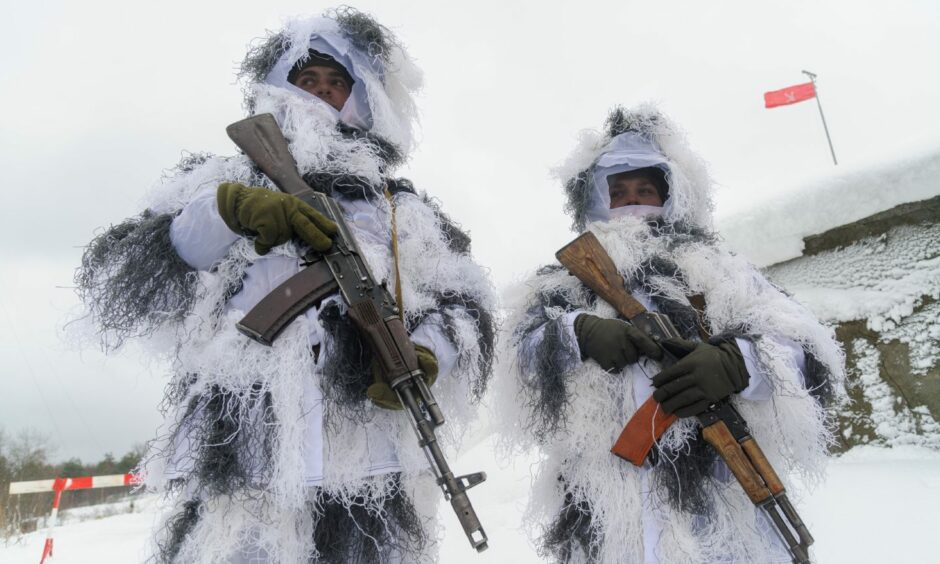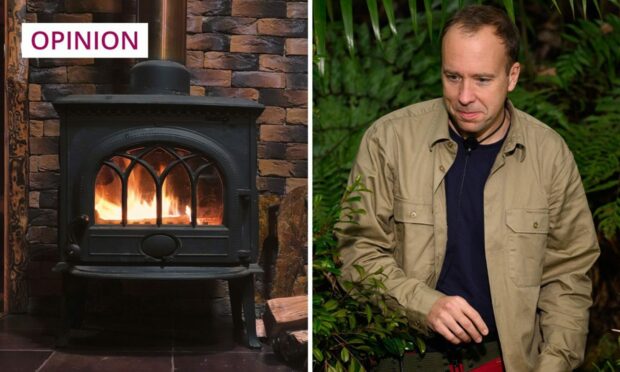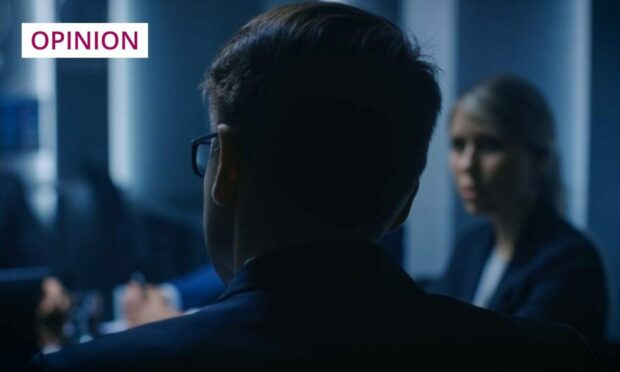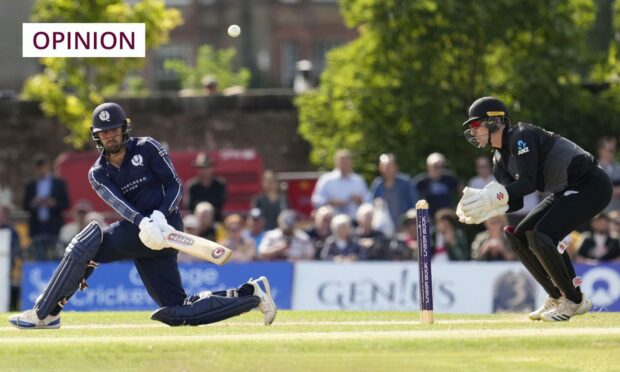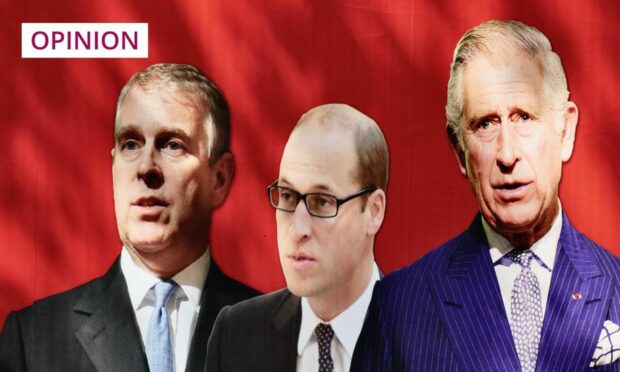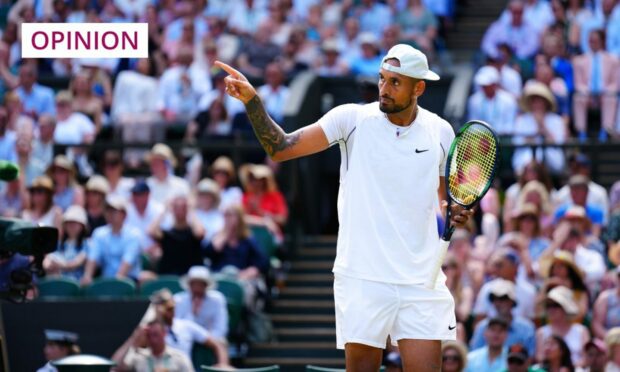My little grandson floored me with a question just after I picked him up from school in Aberdeen the other day.
“Pops,” he said. “Is there going to be a war?”
He’s only six, for pity’s sake.
All I wanted to talk about was what he had for lunch, football practice and if he needed help with school work.
It could have been a completely random thought which entered his head at that particular moment, of course.
But I assumed it was triggered by the Ukraine-Russia crisis.
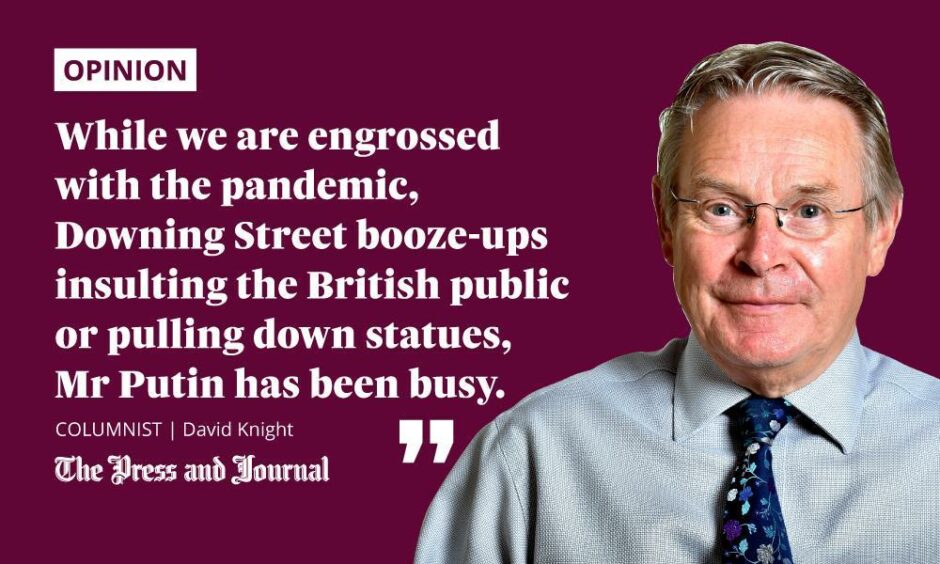
Kids pick things up quickly on their radar, don’t they?
Maybe he saw something about the looming war from TV news or listened to chatter on the school playground.
I did what you would expect: I reassured and deflected him with equal measure, and changed the subject quickly.
Chat stirred up childhood memories
But it made me wonder how many Ukrainian six year-olds were in the path of Putin’s tanks.
This awkward question on the school run had a strange effect on me because it stirred vivid memories of a similar period in my own childhood.
It was in the days when we were still being warned by government public-service announcements about the dreaded four-minute warning we would hear of an imminent nuclear attack.
It was at the height of the Cold War between the West and the Soviet Union when the only things keeping a distinctly chilly kind of peace were terrifying nuclear weapons.
Peace hung on a shaky peg of potential mutual destruction.
I seem to recall that we were advised to hide under a desk or table if nuclear bombs came raining down. I wasn’t much older than my grandson.
And then there was that terrible week when I went to bed every night literally praying on my knees next to my pillow that God wouldn’t allow a Third World War to break out while I was asleep.
This was because the US and Soviet Union were on the brink of all-out war over covert plans to position missiles in Cuba which could hit American cities.
The world held its breath; the crisis subsided. But I never forgot the fear I felt.
War fears over Putin’s actions
While we are engrossed with the pandemic, Downing Street booze-ups insulting the British public or pulling down statues, Mr Putin has been busy.
The result looks like a new Cuba of sorts.
If someone dropped a synopsis on a Hollywood producer’s desk and explained the plot was that disease and climate-change were threatening the world, but a crazy leader decides it’s a good time to start a war, they might say it was an Oscar-winning black comedy.
Maybe they could call it “Kiev – The Edge of Madness”.
We’ve become familiar with modern techno-warfare cyber attacks and interference with democratic elections, but Russia amassed an invasion force on Ukraine’s border reminiscent of the Second World War or even mediaeval times.
Ironically this coincides with the film thriller starring Jeremy Irons which puts a new twist on British prime minister Neville Chamberlain’s infamous diplomatic efforts to stop the Nazis in 1938.
Munich – The Edge of War would normally attract a fair bit of historical interest as these things do, but be quickly forgotten as a new film craze came around the corner.
Yet Chamberlain’s doomed efforts to appease war-hungry Hitler – driven by a desperation not to repeat the carnage of 20 years earlier – have greater resonance given Russia’s apparent intentions now.
Danger of history repeating itself
We look on in disbelief that this is happening in modern-day Europe.
But the paranoia and aggression of dictatorships – coupled with limitless poor judgment – are always bubbling away somewhere in the world.
Appeasement can be a slow tortuous downward spiral.
The West promises fearsome economic warfare retaliation against Putin, but this seemed puny last time after previous aggression in Georgia and Crimea.
There is always a danger of history repeating itself.
In February 80 years ago the US was reeling from the attack on Pearl Harbour, the Russians, ironically, were repelling a Nazi invasion and the British were being humiliated in Singapore by Japanese forces.
The problem with Putin’s dangerous game is that it can escalate into all-out war by accident.
We would not be surprised to find Scotland playing a key UK role in supporting Nato with Trident nuclear submarines from Faslane and RAF Typhoon fighters based in Moray.
Some people, including the SNP, have claimed for years we don’t need this military hardware as old-fashioned wars don’t happen anymore in our own backyard.
They might need to think again after the nightmarish scenes on Ukraine’s doorstep.
David Knight is the long-serving former deputy editor of The Press and Journal
